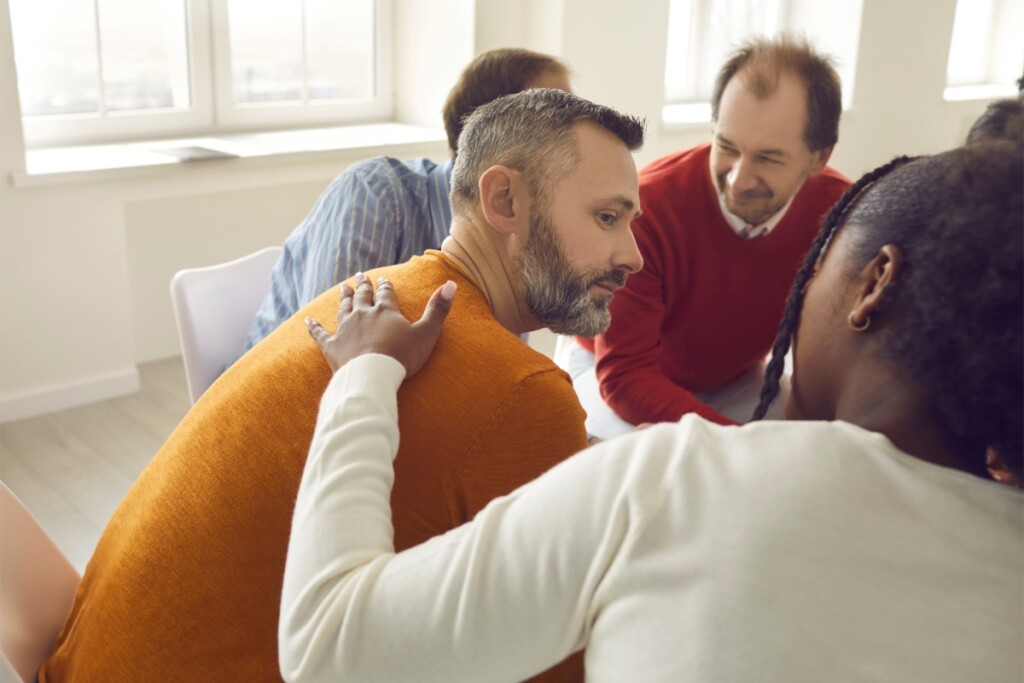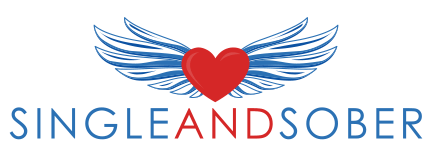
When you’re ready to get sober, finding the right path can feel intimidating. There’s so much information online, from traditional 12-step groups to inpatient rehabs to harm-reduction strategies — when you’re new to recovery, it understandably feels like information overload. To help you navigate the next step on your journey, we compiled this list of recovery resources along with a bit of information about each group and who they serve.
Remember, this abundance of resources is a blessing. When Alcoholics Anonymous first published its main text in 1939, some struggling alcoholics could only get their hands on this book by ordering it via snail mail. Today, you can get onto a Zoom AA meeting with the click of a button. The recovery community and society’s attitude toward living an alcohol-free life have positively evolved over the last 100 years, and the information on this page is here to help you connect with the recovery communities that resonate most deeply with you.
A Note to Newcomers
Welcome, and congratulations on taking your first step towards a fulfilling life, free of the chains alcohol and drugs bring with them. If you’re feeling low, depressed, upset, restless or fearful, this is further confirmation you’re making the right choice. People rarely decide to give up drugs and alcohol because they feel great — more often, people who find themselves researching recovery resources are deeply struggling while others simply recognize their relationship with alcohol or other substances is counterproductive to their goals. The resources listed here all offer their own approach to recovery, and while each says it differently and approaches the process in its own way, the goal is always the same: to stay abstinent from alcohol and drug-use in pursuit of a happy, healthy life.
If you’re detoxing from alcohol and drugs, you may need medical assistance. Before diving into a recovery program focused on sustained abstinence, you may need a medical detox program or inpatient rehab for a short time. Once you’ve safely detoxed from drugs and alcohol, the real work of finding your way to your healthiest, best life can begin.
- SAMHSA – The Substance Abuse and mental Health Services Administration can help you find a treatment facility for detox, inpatient and outpatient rehab.
12-Step Recovery
Most everyone is familiar with the idea of 12-step recovery, whether you personally know someone who is a member of Narcotics or Alcoholics Anonymous or you’ve seen it represented in TV and movies. 12-step programs offer members a spiritual path out of addiction along with the power of community. It’s free and easily accessible — anyone can join and you are a member when you say you are.
- Alcoholics Anonymous – Find out more about the AA program and meetings in your area.
- Narcotics Anonymous – Find out more about the NA program and meetings in your area.
- Alcoholics Anonymous Online Intergroup – Find online AA meetings here, held on Zoom.
- Virtual NA – NA meetings online & by phone
Buddhism-Based Recovery
There are a couple of options for seeking recovery through Buddhism. The Buddha discovered that suffering in life was caused by an “uncontrollable thirst or repetitive craving,” as such, is addiction.
Refuge Recovery is an organization that provides healing from addiction through the application of The Buddhist System, including the Four Truths, the Eightfold path and utilizing meditation as the cornerstone of the practice. Refuge Recovery is another free community offering a structured process of releasing addictive patterns and engaging in healthy community.
Recovery Dharma emphasizes empowerment as the purpose of recovery, and relies on Buddhist teachings to impart this power onto members to help heal addiction and achieve true freedom. The Recovery Dharma book includes application of the Four Truths and the Eightfold Path, recovery stories from peers and other tools for your journey to freedom. This is a free community that hosts meetings in-person and online.
- Refuge Recovery – Find online or in-person Refuge Recovery meetings.
- Recovery Dharma – Find online or in-person Recovery Dharma meetings.
Movement-Based Recovery
Exercise plays a big role in healing, recovery and overall wellness. Some organizations put this connection at the forefront of their recovery philosophy.
Y12 is a yoga-based recovery community, offering an approach designed to help people in recovery grow stronger, stay present, build healthy habits, learn, share and heal together in a supportive community. It combines the gentle movement practice of yoga, up-to-date research in trauma healing and neuroscience, and various recovery models including 12-step programs and CBT. Whether you’ve practiced yoga religiously or you’re new to the practice, all are welcome at Y12 meetings. Meetings are free and held online and in-person.
Recover Out Loud (ROL) is an Indiana-based recovery community based on the finding of the Rat Park experiments — these experiments showcased rats’ preference for drug-free water when placed in an environment where they were free to play and socialize, verus their isolated rat-counterparts who chose cocaine- and heroin-laced water. ROL strives to create a community that breaks stigma and supports healing. One arm of this organization is Recovery Fitness in Training, an incentive-based cohort-style recovery fitness program called RFIT. It combines fitness and recovery, because ROL stands by the idea that recovery is about improving the whole person.
- Y12 – Find Y12 meetings online or in-person.
- Recover Out Loud (ROL) – Stream a live meeting and learn more about RFIT here.
Women’s Recovery Groups
While you can find gender-specific AA and NA meetings, there are entire recovery communities dedicated to carving out space where women help one another recover. Whether it’s listening to a podcast or joining a meeting, there are plentiful options for finding your new sober girl gang.
- A Sober Girls Guide – Find the program, tools or podcast episode perfect for where you are in your journey.
- Women For Sobriety – Register online to access dozens of free weekly online meetings.
Paid-Membership-Based Recovery
All the recovery resources listed on this page up until this point are free to join; most are registered non-profit organizations that ask for donations, although they are not a requirement. If putting your money where your mouth is helps you stay accountable to your recovery, you may want to join a subscription or paid-membership-based recovery program.
The Luckiest Club (TLC) is an online sober community dedicated to supporting individuals on their journey to alcohol recovery. Emphasizing compassion and inclusivity, TLC offers daily meetings, specialized support groups (including for women, men, BIPOC and LGBTQIA+ members), and courses like “The Sober 90” to foster connection and personal growth. Rejecting rigid dogma, TLC embraces diverse paths to sobriety, encouraging members to lead with honesty, bravery and self-discovery.
- The Luckiest Club – Find meetings here and enjoy a 7-day free trial before committing to the club.
Complementary Recovery Practices
Most people in recovery find themselves seeking mental health services at one point or another. Addiction is often connected with lived trauma, and the cycle of addiction can cause more harm, mentally and physically. If you’re looking for ways to connect with a therapist, our previous post outlines resources where you can find mental health care tailored to your needs.
Recovery: A Journey To Wellness
In the end, recovery is a personal trek toward overall healing and wellness. By giving up alcohol and drugs, you have so much to gain. Using affects every area of our lives — physical and mental health, career, relationships, love, sex and personal enjoyment. When we release addictive patterns and substances, all areas of our lives become free to grow and take shape in new, beautiful ways.
The resources on this list are always available to you and we hope you’ll take advantage of knowing where to find the support you need and deserve.

Pam Stepansky is a Jewish American writer, humorist, and self-care enthusiast who is passionate about recovery, philosophy, and what it means to be human. She resides in Wayne PA with her partner, Adam, and their spirited tuxedo cat, Gumbo
